Digital Scholarship for Keeps:
What Matters
and What Lasts?
Elisa Beshero-Bondar
Professor of Digital Humanities, Penn State Erie
(used to be Assoc Prof. of English, Pitt-Greensburg)
Mastodon: epyllia@indieweb.social | X and Bluesky: @epyllia
MLA 2024 Panel 404: Evaluating Digital Scholarship Today: Problems and Solutions
6 January 2024: 8:30 AM - 9:45 AM
Background image generated by DALL-E via Bing, in response to prompt about this talk: 2023-12-22
Our students can't / don't want to read and think they never have to write again.
Our administrators don't remember what they learned in humanities courses.
Corporate and political control of our institutions devalues what we care about.
What scholarly work matters now,
in an age of digital wreckage?
AI is changing our thought processes and workflows.
Limited university support for digital project hosting
Traditional “anchors” of evaluation in humanities
- "The book is the gold standard."
- repeated anywhere humanities faculty are assembled
-
publishing to the point of perishing?
-
How expensive?
- Are new books in your field affordable for university libraries?
- Does the book require subvention by the author? Supported by your school?
- Are their presses supported? (university presses facing budget cuts)
See MLA Statement in support of University Presses (revised 2019) - Are they widely available and indexed for wide-ranging access?
-
How expensive?
- Does research time on a book cultivate the survival of departments/programs? (Should we care?)
- Lead or sole authorship matters most
- How much and how quickly are you learning, working alone?
- Considering only publication in ranking journals and presses as meritable
- de-valuing grant work
- "not counting" development of digital scholarly projects and resources
- discouraging time spent on anything other than exclusive publications even when it could change the scope of the department and the work the students and faculty can do.
Background image: Flickr from Bureau of Land Management: New Carissa shipwreck
Niches, arcs, or lifeboats ?
- How departments die
- No approval/funds to hire TT or FT
- No replacement of retiring faculty
- Hesitant support for faculty initiatives that don't fit the old known ways?
- Surviving together?
- Today requires new forms of research! Recognize and value them formally.
-
Research is needed to establish those new forms:
- grant writing to support new infrastructure: (what's required to output a lab for XR, sound, retro computing?)
-
experimental digital projects to apply a standard method from another field to yours:
- (e.g. georectifying a massive set of image files representing an unusual 18c map projection model that no one knows much about)
- professional skill-development by and for faculty: organizing workshops so we learn together
- new curriculum development
Background image source: Mission Lifeline Search and Rescue
Watch what's happening on the edges/fringes
- Regional comprehensives
- satellites of the "main" campuses
- small liberal arts colleges
- sites of concentrated pressure / rapid change
- research is sometimes practiced and rewarded differently here
- easier to interact across disciplines
- clever strategies to solve resource challenges
- research motivations often center on student success
- often strong connections with local communities / schools
See People, Practice, Power: Digital Humanities Outside the Center, eds. Anne B. McGrail, Angel David Nieves, and Siobhan Senier (2022).
Roopika Risam, “Stewarding Place: Digital Humanities at the Regional Comprehensive University." In People, Practice, Power, Digital Humanities Outside the Center, eds. Anne B. McGrail, Angel David Nieves, and Siobhan Senier (2022).
[...] we have reframed the limitations of a regional comprehensive university—student profile, unique untapped resources, and emphasis on student success—as affordances for our local approach to digital humanities. We approach design from this perspective, recognizing that there would not be need for digital humanities at the university if not for its value to our students. There is simply not enough time or money available to invest in projects based on faculty research alone, and digital humanities experiences are especially valuable to our students.
—Roopika Risam, about Salem State U.
(De)valuing our scholarship
(digital and otherwise)
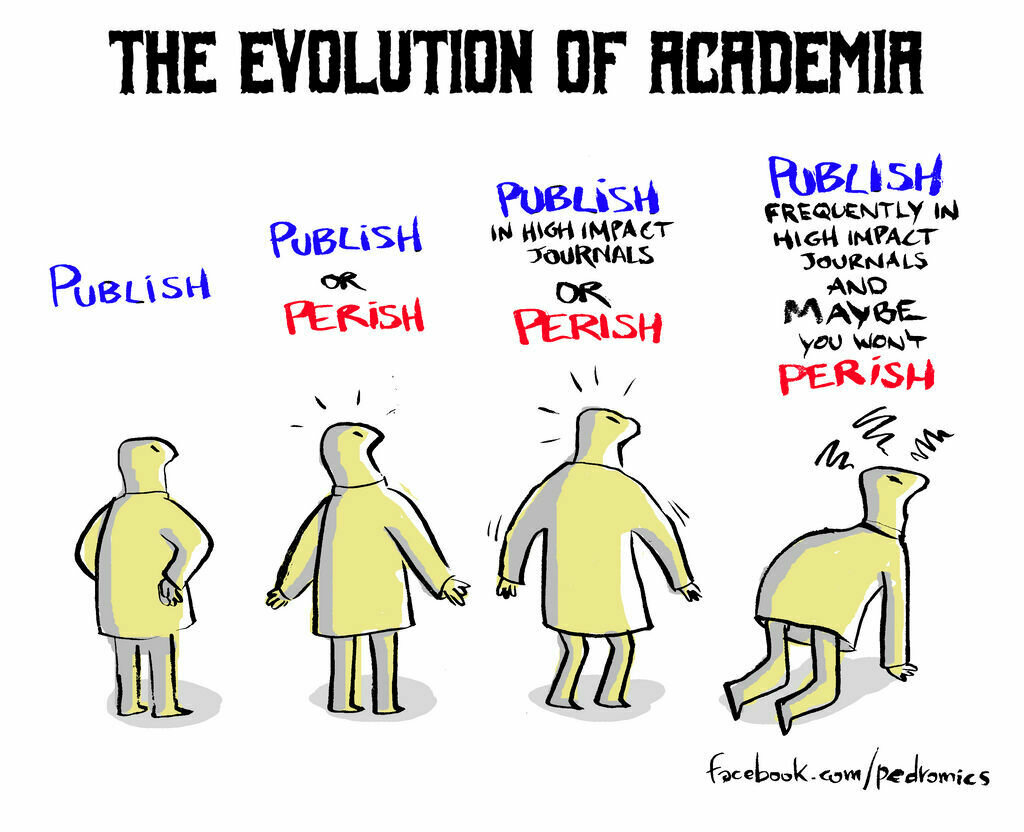
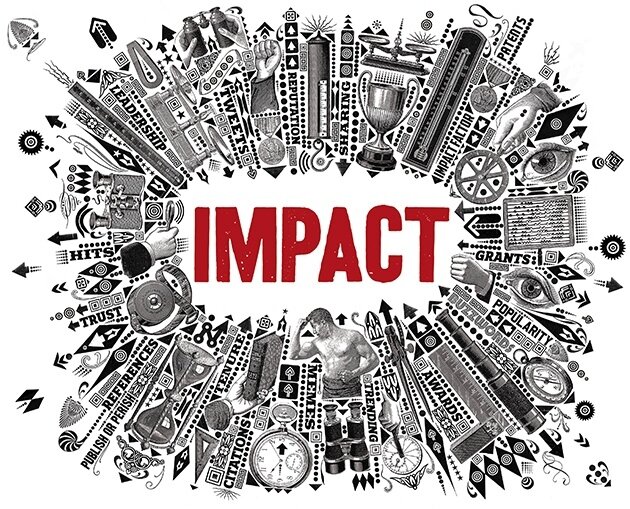
Who defines the "impact" of humanities scholarship?
See HumetricsHSS: Humane Metrics Initiative
"Current incentives and rewards create an unsustainable and unstable scholarly ecosystem."
"Making change requires understanding the levers you control within your institution and outside of it; recognizing your own agency and the spaces in which you have influence."
"Values work is iterative, ongoing, and moves at the speed of trust."
Image credit: Lorenzo Petrantoni, in "Research evaluation: Impact." Nature 502, 287 (2013). https://doi.org/10.1038/502287a
- If we can, critique / reject the metrics, or work on defining altmetrics
- Humanities "impact" is never going to look the way it does in the sciences, engineering, and business.
- And our colleagues and administrators therefore say our fields are just an insignificant "luxury".
- Define "impact" by
- Creating new methods and venues for scholarship
- Creating new opportunities for research that engages students and colleagues
- Fostering collaboration and new research networks
"Bring out number, weight, & measure in a year of dearth"
—William Blake, The Proverbs of Hell
"Impact" factors of digital research projects
Open access scholarly publishing
- An era of "scholarly communication reform" (OSI)
- Shifting grounds: navigating predatory vs. reputable venues
- reliability / authenticity vs. pressure to publish too quickly (not just humanities)
-
Where / how should we publish now?
- Do books / journals provide a means to share and review data for a digital analysis?
- Can self-hosted work be peer-reviewed?
- Not simply free to produce and free to access
- authors and their institutions can be paying
- libraries may need to pay to access until enough subscribe
- What is accessible varies widely: can we reach the data?
- Media and data formats
- duplicate of print? (PDF)
- distributed via brittle/vulnerable frameworks (Wordpress?)
-
transferrable document data formats?
- Markup languages and portable data structures: XML/HTML, CSV/TSV
- Semantic web: linked data: JSON
- Data repositories: Humanities Commons and others
- OSI: The Open Scholarship Initiative: https://osiglobal.org/
- "Funding models: Open Scholarship and Scholarly Publishing"
https://guides.library.umass.edu/ScholarlyPublishing/FundingModels
Findability, Accessibility, Interoperability, and Reuse of digital assets
- Core values for mindfully sharing scholarly resources
- an active journey, solutions to be charted for every digital project.
- FAIR: https://www.go-fair.org/fair-principles/
- CARE principles for Indigenous Data Governance: https://www.gida-global.org/care
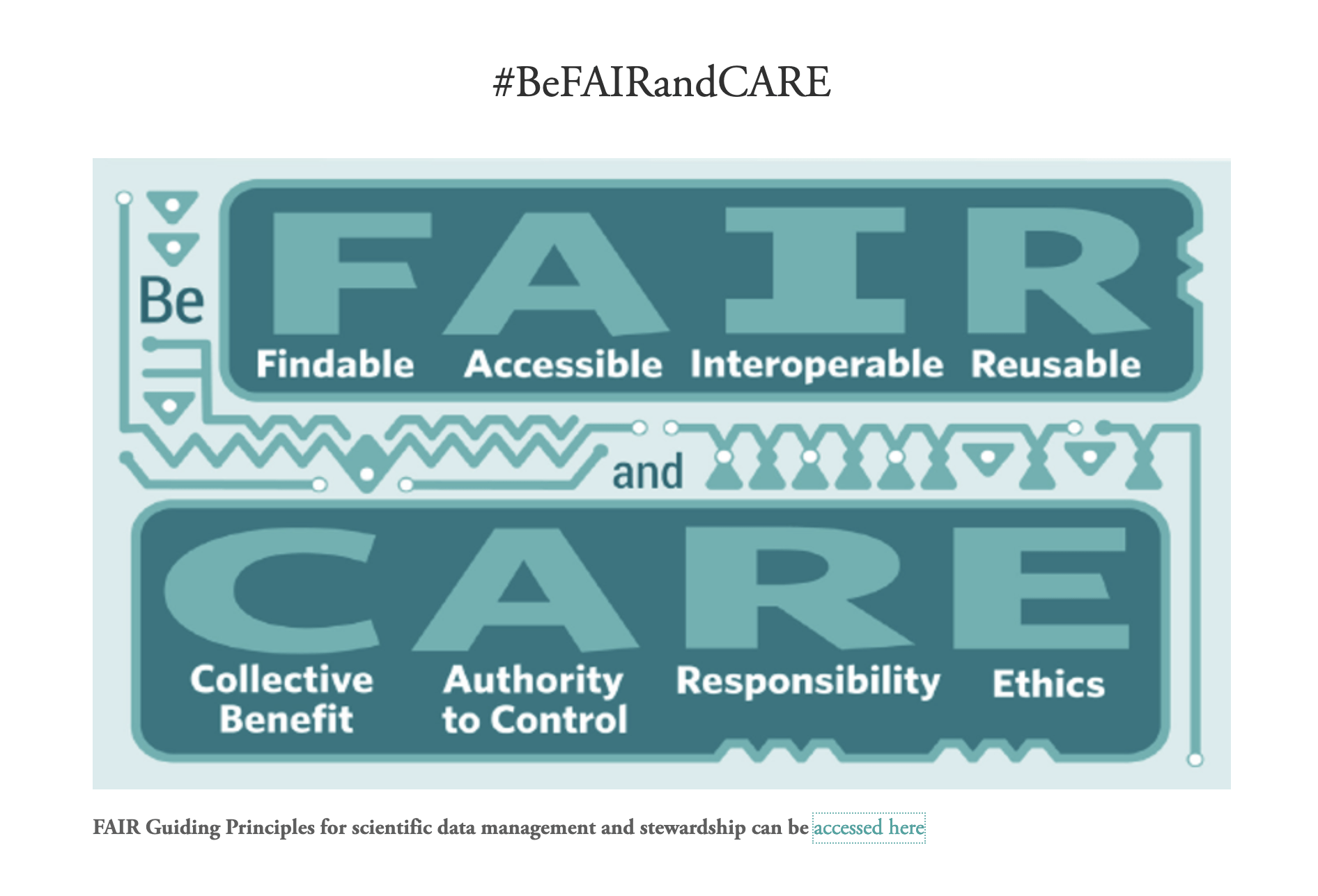
What matters now?
Infrastructure work as scholarship effort
Examples/suggestions inspired by the digital and public humanities
- Minimal computing
- expanding access to practice of digital scholarship to global south, locations with limited internet and access to computers (Risam/Gil)
- digital literacy initiatives: Cultivate humanities critique over technological addiction. How do we minimize overconsumption, compute and build with less damage?
- Digital scholarly editions, databases, archival curation/exploration, and immersive reality projects (and more)
- involving generations of students with scholars
- creating publication opportunities on all aspects of development
- Sustainability action plans help projects survive
- Evaluate how resources are preserved, maintained, transmitted
- Try the Socio-Technological Sustainability Roadmap
-
Anticipating changing support infrastructure
- stability of server resources inside and outside the university
- Capacity to support permalinks / DOIs when projects migrate
- Evaluate every 5 or 6 years
- Plan for digital projects to end
-
Endings project principles (https://endings.uvic.ca/principles.html)
- require understanding of file / data formats and version control
- Package the project to be available for others to build on
- Make the end a beginning for others, not an abandoned ruin
-
Endings project principles (https://endings.uvic.ca/principles.html)
What lasts?
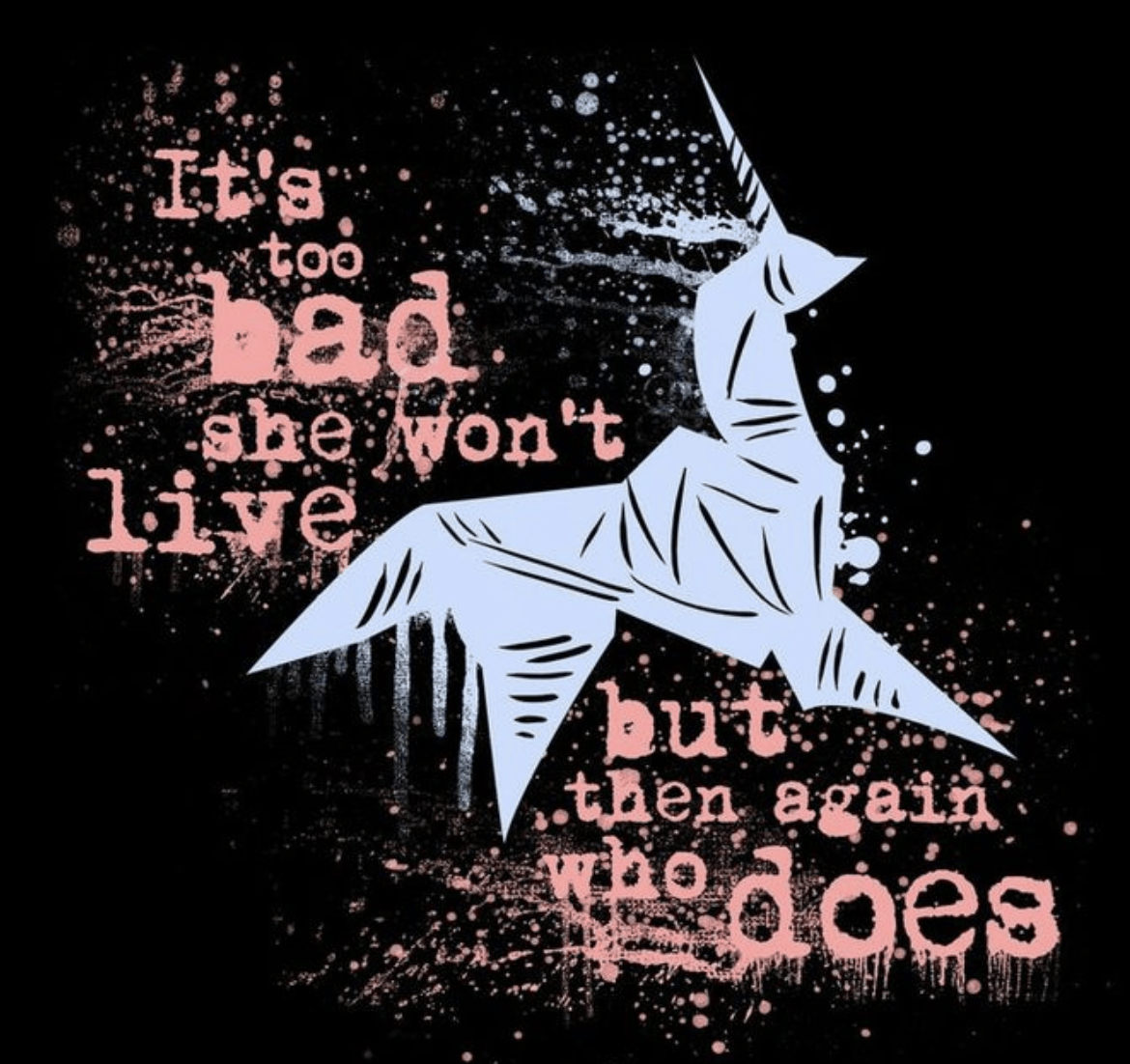
Image source: Pinterest. Inspiration, Blade Runner (1982, director's cut)
Schools, departments, programs, you can:
- Cultivate awareness and mentorship of digital scholarship
-
Know / Seek out / engage in scholarly peer review of digital scholarly resources:
- e.g. review journals: Reviews in DH and RIDE: a review journal for digital editions and resources
-
Know / Seek out / engage in scholarly peer review of digital scholarly resources:
- Help establish in-house resources: funds, rewards, time to develop
- Recognize consistently that digital projects are more than service
- not just for the institution or profession as an extra "pro bono" work
- especially for the individual scholar as a career building path: recognize scholarly quality of the work
- Revise local guidelines for promotion / tenure
- Reconsider what counts as high-priority scholarship now, because institutions are changing
- Plan to revisit periodically—5-10 years?
-
Keep pulse of the profession:
- What are professional organizations / learned societies saying about evaluating digital scholarship?
- Watch this space: MLA Guidelines for evaluating work in digital humanities and digital media (2012 ed., revisions coming soon!),
Support for what lasts?
Resources for further reading
- Joseph Esposito, "Fallout from the implosion of humanities enrollments," The Scholarly Kitchen: What's hot and cooking in scholarly publishing. 25 April 2023. https://scholarlykitchen.sspnet.org/2023/04/05/fallout-from-the-implosion-of-humanities-enrollments/
- Robert Zaretsky, "Humanities on the cutting-room floor: This is what it looks like when a college prioritizes graduation rates," The Chronicle of Higher Education: The Review 6 December 2023. https://www.chronicle.com/article/humanities-on-the-cutting-room-floor
- On collaboration, openness, and experimentation as core values of digital humanities, see Lisa Spiro, "'This is why we fight': Defining the values of the digital humanities," Debates in the Digital Humanities. Manifold: 2012, https://dhdebates.gc.cuny.edu/read/untitled-88c11800-9446-469b-a3be-3fdb36bfbd1e/section/9e014167-c688-43ab-8b12-0f6746095335#ch03 .
- On the importance of digital projects to public crises in our moment, see Matthew Gold and Lauren F. Klein, "Introduction: The Digital humanities, moment to moment," Debates in the Digital Humanities. Manifold: 2023, https://dhdebates.gc.cuny.edu/read/f3f87448-138c-4d19-8ff8-b06acf40ddd1/section/a7fa1e96-e1cb-4b98-9ce1-37a3152010db#en1; as well as Roopika Risam, "Don't save the university—transform it," Public Books, 24 May 2021, https://www.publicbooks.org/dont-save-the-university-transform-it/ .
-
Andrew Pilsch and Shawna Ross, "Labor, alienation, and the digital humanities," The Bloomsbury handbook to the digital humanities, Bloomsbury Handbooks: 2022, https://hcommons.org/deposits/item/hc:50071/ .

THREE CV LINES WALK INTO A BAR
Modeling Early Career Research Profiles in the Digital Humanities
Kandice Sharren
Assistant Professor, University of Saskatchewan
kandice.sharren@usask.ca
Photo by Oliver Frsh on Unsplash
2012
Began PhD
(September)
2018
Finished PhD
(defended October, revisions submitted December)
2020
First campus interview for a permanent TT position (March)
2023
Began TT position (July)
2022
Began three-year postdoc at the University of Galway (February)
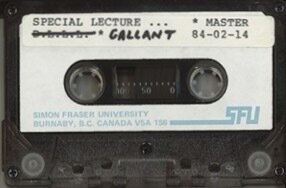
RELATED
OUTPUTS
-
Two podcast episodes
-
Two events ("listening parties")
-
One journal article
-
Ongoing collaborative relationship
-
AudiAnnotate text (Moffatt only)
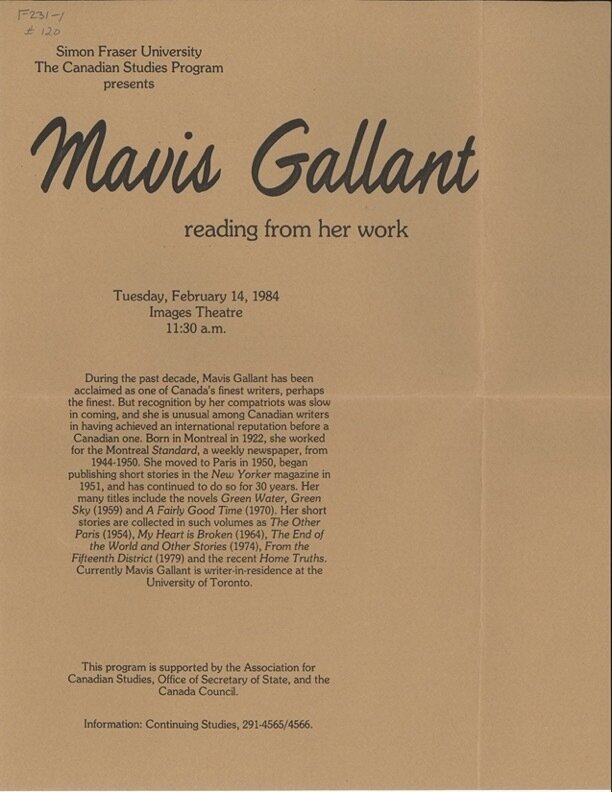

PART-TIME CONTRACTS, 2020-21
-
Limited-term lectureship, Simon Fraser University English Department
- 8-month contract, 50% of full-time (September-April)
- 4 undergraduate courses (1 in Fall semester, 3 in Spring semester)
-
Project Manager, Women's Print History Project
- Ongoing role, contracts 4 months at a time
- 10-15 hours/week
-
Research Assistant, SpokenWeb Project
- Ongoing role, contracts 4 months at a time
- 10 hours/week
- Research Assistant, Modernist Archives Publishing Project
- Hourly, as needed
-
Marker, Langara College
- Hourly, as needed
〞
… the practice of employing postdoctoral researchers as long-term researchers, with little mentoring and little hope of moving into a career that requires advanced research training, is becoming more common. The mentored training aspect of a postdoctoral researcher’s experience can be inconsistent and often inadequate. The mismatch between the expectations and outcomes of the postdoctoral experience causes disappointment and disillusionment for some postdoctoral researchers, and may discourage undergraduate students and graduate students from continuing to pursue careers in research... (68)
— National Academies of Sciences, Engineering, and Medicine, The Postdoctoral Experience Revisited (2014)
1. What are the candidate's unifying methodologies, questions, or practices?
2. Is there evidence of the candidate maintaining collaborative relationships over time?
3. Is there evidence of leadership within projects?
4. Has the candidate engaged effectively with institutional structures?
5. How can the hiring committee adjust for personal or institutional biases?
Some Questions for Hiring Committees
Anderson, Katrina, et al. “Student Labour and Training in Digital Humanities.” Digital Humanities Quarterly, vol. 010, no. 1, Feb. 2016.
Battershill, Claire. “The Stories We Tell: Project Narratives, Project Endings, and the Affective Value of Collaboration.” Digital Humanities Quarterly, vol. 017, no. 1, May 2023.
Berens, Kathi Inman, and Laura Sanders. “DH and Adjuncts: Putting the Human Back Into the Humanities.” Disrupting the Digital Humanities, edited by Dorothy Kim and Jesse Stommel, Punctum Books, 2018.
Boyles, Christina, et al. “Precarious Labor and the Digital Humanities.” American Quarterly, vol. 70, no. 3, Sept. 2018, pp. 693–700.
Brown, Susan. “Delivery Service: Gender and the Political Unconscious of Digital Humanities.” Bodies of Information: Intersectional Feminism and Digital Humanities, University of Minnesota Press, 2018.
D’Ignazio, Catherine and Lauren F. Klein. Data Feminism, MIT Press, 2020.
Gailey, Amanda, and Dot Porter. “Credential Creep in the Digital Humanities.” #alt-Academy: A Mediacommons Project, 6 May 2011, http://mediacommons.org/alt-ac/pieces/credential-creep-digital-humanities.
Keralis, Spencer D. C. “Disrupting Labor in Digital Humanities; or, The Classroom Is Not Your Crowd.” Disrupting the Digital Humanities, edited by Dorothy Kim and Jesse Stommel, Punctum Press, 2018, pp. 273–94.
Koh, Adeline. “A Letter to the Humanities: DH Will Not Save You.” Disrupting the Digital Humanities, edited by Dorothy Kim and Jesse Stommel, Punctum Books, 2018, pp. 39-48.
National Academies of Sciences, Engineering, and Medicine. The Postdoctoral Experience Revisited, The National Academies Press, 2014. https://doi.org/10.17226/18982.